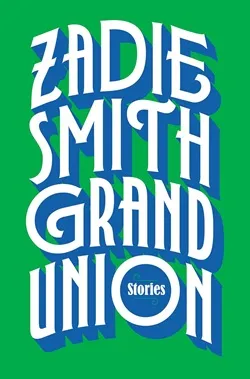
Zadie Smith’s Grand Union amazes me. The stories found in this book are incredible, and they’re bursting with life.
I had first read White Teeth a few years ago, and I was really impressed with her work, but I think that her ability has improved significantly since. It’s a wonder that Grand Union hasn’t gained more traction. There’s something about the way in which she is able to merge registers: a line might read in a way that is so literary, then she drops some lowbrow humor that forces me to cackle to myself.
Many of the stories here are about agency: Who has agency, and how do we exert it? What does it mean to be limited by our perspective, or that of others?
“Sentimental Education” is one of the finest stories in the collection, and–on the surface–it tells the story of a university romance. However, Smith inverts gender tropes, and provides much-needed agency to women when societally we are unable, or unwilling, to do the same. For example, rather than being narrated by a man who sees a young woman as his muse, Smith’s protagonist seeks out her own lovers as muses. Even in bed, she is the one who insists on exerting her own will: the man does not “pull out,” she “releases him.” “Big Week” is another story that plays with agency; the whole story is centered around an Irish-American man who fell on hard times and is doing everything he can to win back his wife. However, in the final page or two, we discover the extent to which she has yearned for her own agency, to be a whole person on her own, and it forces us to wonder about the stories we tell.
In “Miss Adele Among the Corsets,” on the other hand, Smith provides us with the perspective of a middle-aged trans woman who had been discriminated against for all of her life. She lashes out against shopkeepers, not realizing that they are well-intentioned with their own ways of being. But, her subjectivity overrules any possibility of making senses of “things as they are.” There are no noumena here: everything is phenomenal.
There are also a few deconstructive stories. “Parents’ Morning Epiphany” analyzes an elementary school (?) student’s reading homework critically, while “Mood” tells stories between the lines. “Kelso Deconstructed” is the single best story in the collection, and it follows a man named Kelso on his final day on earth.
I’ve seen Zadie Smith described as a postmodernist before, but I don’t think that could be further from the case. She–alongside David Foster Wallace and perhaps Sally Rooney–belong to some sort of post-postmodernist movement. Some have called it metamodernism, others the “New Sincerity,” and perhaps there is other terminology still. What is important here is the idea that there are no figurants (to use the language of DFW in Infinite Jest); everyone has a story, and the way we write tells us a whole lot about what we think of other peoples’ stories. Smith is really sensitive to others, and she’s able to write reprehensible characters in a way where we still don’t despise them. The emotional intelligence and technical skill to do such a thing is jaw-dropping, and we have to commend the author for being able to do it.
Ultimately, I adored this collection of short stories. Every line here is dynamic and alive; I yearn to be able to write like that one day.